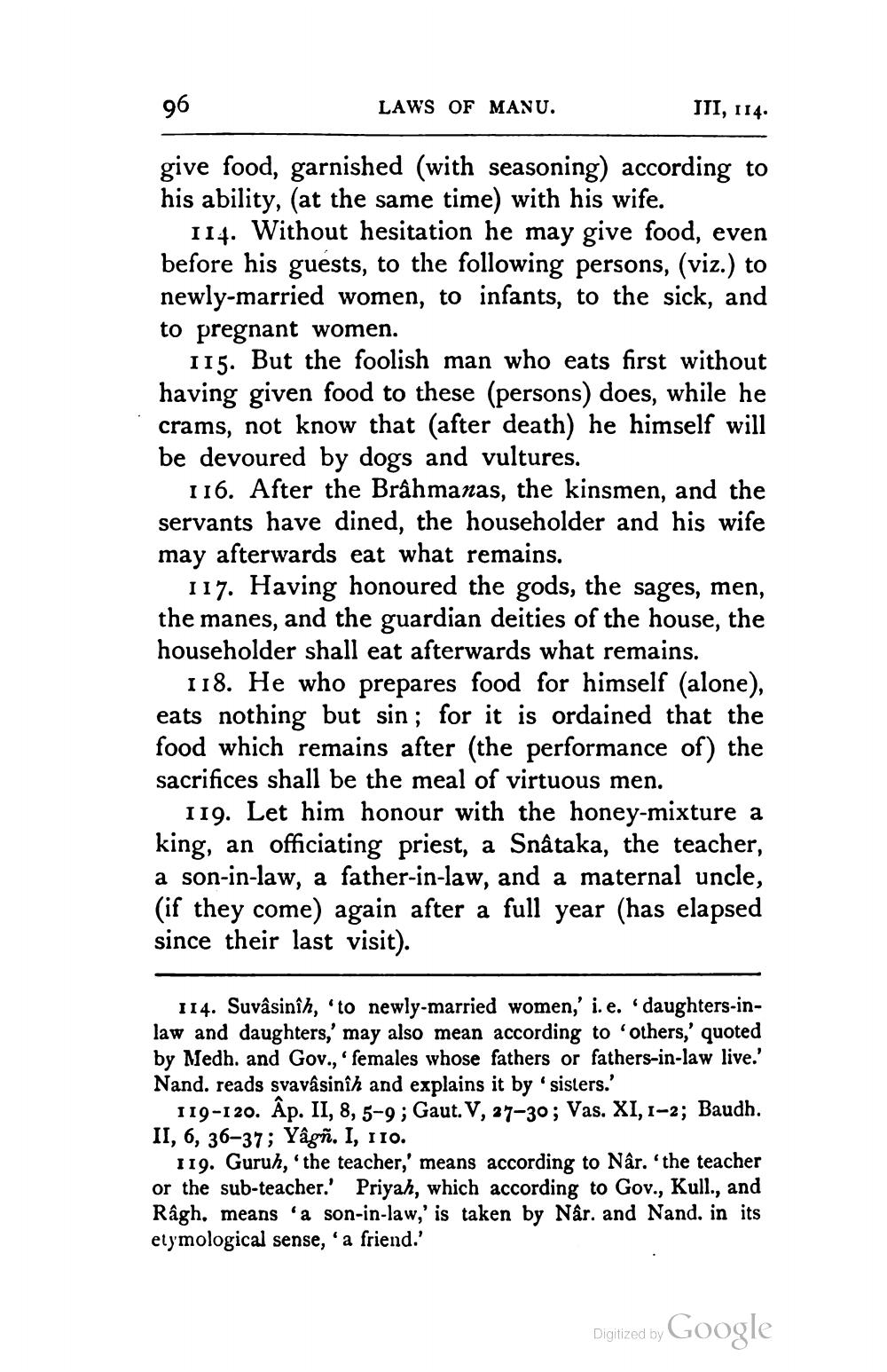________________
96
LAWS OF MANU.
JII, 114
give food, garnished (with seasoning) according to his ability, (at the same time) with his wife.
114. Without hesitation he may give food, even before his guests, to the following persons, (viz.) to newly-married women, to infants, to the sick, and to pregnant women.
115. But the foolish man who eats first without having given food to these (persons) does, while he crams, not know that (after death) he himself will be devoured by dogs and vultures.
116. After the Brahmanas, the kinsmen, and the servants have dined, the householder and his wife may afterwards eat what remains.
117. Having honoured the gods, the sages, men, the manes, and the guardian deities of the house, the householder shall eat afterwards what remains.
118. He who prepares food for himself (alone), eats nothing but sin; for it is ordained that the food which remains after (the performance of) the sacrifices shall be the meal of virtuous men.
119. Let him honour with the honey-mixture a king, an officiating priest, a Snataka, the teacher, a son-in-law, a father-in-law, and a maternal uncle, (if they come) again after a full year (has elapsed since their last visit).
114. Suvâsinîh, 'to newly-married women,' i. e. daughters-inlaw and daughters,' may also mean according to others,' quoted by Medh. and Gov., 'females whose fathers or fathers-in-law live.' Nand. reads svavâsinîh and explains it by sisters.'
119-120. Ap. II, 8, 5-9; Gaut. V, 27-30; Vas. XI, 1-2; Baudh. II, 6, 36–37; Yâgñ. I, 110.
119. Guruh, the teacher,' means according to Nâr. 'the teacher or the sub-teacher.' Priyah, which according to Gov., Kull., and Râgh. means 'a son-in-law,' is taken by Nár. and Nand. in its etymological sense, a friend.'
Digitized by Google




